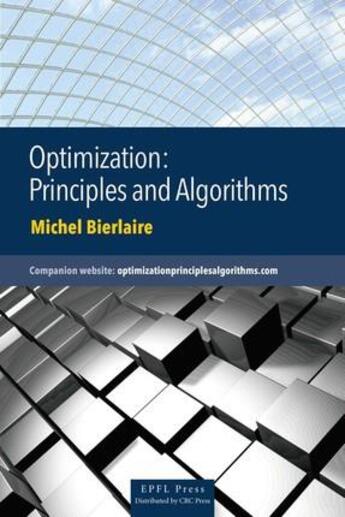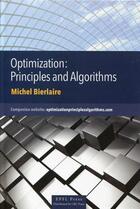-
Date de parution : 08/03/2019
-
Editeur :
Ppur
-
EAN : 9782889152797
-
Série :
(-)
-
Support :
Papier
Résumé:
Every engineer and decision scientist must have a good mastery of optimization, an essential element in their toolkit. Thus, this articulate introductory textbook will certainly be welcomed by students and practicing professionals alike. Drawing from his vast teaching experience, the author... Voir plus
Every engineer and decision scientist must have a good mastery of optimization, an essential element in their toolkit. Thus, this articulate introductory textbook will certainly be welcomed by students and practicing professionals alike. Drawing from his vast teaching experience, the author skillfully leads the reader through a rich choice of topics in a coherent, fluid and tasteful blend of models and methods anchored on the underlying mathematical notions (only prerequisites: first year calculus and linear algebra). Topics range from the classics to some of the most recent developments in smooth unconstrained and constrained optimization, like descent methods, conjugate gradients, Newton and quasi-Newton methods, linear programming and the simplex method, trust region and interior point methods.
Furthermore elements of discrete and combinatorial optimization like network optimization, integer programming and heuristic local search methods are also presented.
This book presents optimization as a modeling tool that beyond supporting problem formulation plus design and implementation of efficient algorithms, also is a language suited for interdisciplinary human interaction. Readers further become aware that while the roots of mathematical optimization go back to the work of giants like Newton, Lagrange, Cauchy, Euler or Gauss, it did not become a discipline on its own until World War Two. Also that its present momentum really resulted from its symbiosis with modern computers, which made it possible to routinely solve problems with millions of variables and constraints.
With his witty, entertaining, yet precise style, Michel Bierlaire captivates his readers and awakens their desire to try out the presented material in a creative mode. One of the outstanding assets of this book is the unified, clear and concise rendering of the various algorithms, which makes them easily readable and translatable into any high level programming language. This is an addictive book that I am very pleased to recommend.
Prof. Thomas M. Liebling.
Donner votre avis
















